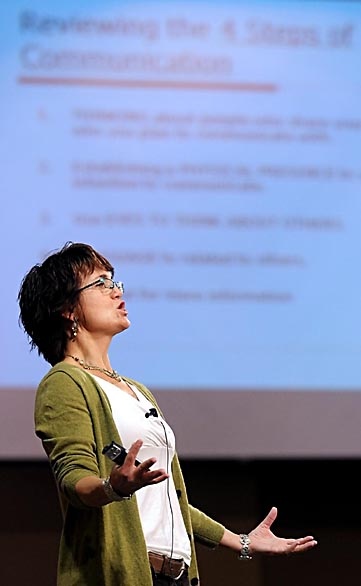As a relatively new area to the field of speech and language pathology, the treatment of social pragmatic disorders requires a keen eye and understanding of language from the perspective of more than nouns, articulators and verbs. Social cognitive and social language skills involve the coordination of many skills such as, perspective taking, nonverbal body language, humor, figurative language, conversation skills, and social connectedness. Today, Pamela Ely, M.S., CCC-SLP shares her clinical experience and passion for this very complex and critical area of speech and language.
Social Thinking Conference Coming to Kansas City April 18-19
Speech Therapy Techniques State ResourcesIf you haven’t heard the term, “thinking with your eyes” you haven’t yet spent the day (or two) with Michelle Garcia Winner. Michelle is a speech pathologist and creator of the “Social Thinking” curriculum for students with Social Thinking challenges including those with ADHD, high functioning autism, Asperger Syndrome, ADHD, PDD and nonverbal learning disorder (NLD). Speech therapists and parents in the midwest will get a chance to experience and learn Michelle’s curriculum during a two-day core conference covering her two most popular workshops on April 18-19, 2013 at the Ritz-Charles in Kansas City.
How to Use TV as a Speech Therapy Tool for Social Pragmatics
Speech Therapy Techniques
Did yesterday’s post make you want to grab the remote and run? If the new facts about television’s effect on preschool children scared you, it should. But we shouldn’t discredit television all together. For older children, social pragmatic skills can be a great medium for harnessing the elements of television for good. Inference, conversation, humor and analyzing social situations are all goals that can be addressed in speech therapy using TV programs. Similarly, families who gather and watch television together have great opportunities to engage, rather than passively watch, and discuss the situations they are seeing.



